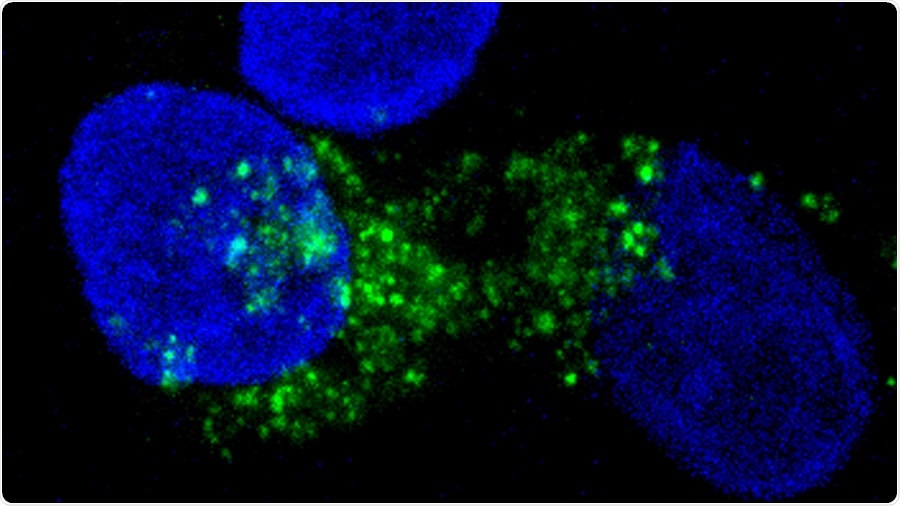Scientists from UAB and Vall d’Hebron recently pinpointed the mechanism by which inhibitors of the ERK5 protein kinase diminish cancer cell proliferation and trigger their death.

Image Credit: Universitat Autònoma de Barcelona.
The observations obtained with human cancer cell lines reveal that ERK5 inhibition activates cytotoxic autophagy—a mechanism that induces cancer cell death, without impacting healthy cells. Cancer treatment can be enhanced by a combination of chemotherapy and ERK5 inhibitors.
Cellular protein synthesis occurs at the endoplasmic reticulum. Due to various factors, like lack of oxygen or nutrients, the endoplasmic reticulum becomes stressed resulting in the compromise of cell survival. To handle this, a mechanism known as UPR (Unfolded Protein Response) is initiated to restore protein production and cellular normality.
UPR, among other strategies, initiates autophagy—a biological mechanism that facilitates cells to recycle and degrade defective components. When the stress is prolonged or extreme, UPR is insufficient to restore protein production and it leads to cytotoxic autophagy that activates apoptosis (cellular suicide).
UPR takes place in all the cells of the body. However, it has particular relevance in tumor cells, which exhibit high levels of endoplasmic reticulum stress. Autophagy and UPR enable the tumor cells to adapt better to the environment and to evade the immune system.
As a result, tumor cells are highly sensitive to attain a level of autophagy that is toxic for the cell. Therefore, autophagy modulation can be considered a novel therapeutic strategy to treat cancer. Drugs inducing high levels of autophagy resulted in the collapse of tumor cells, and the activation of the apoptotic cell death program.
MAP kinase ERK5 protein regulates the survival and proliferation of tumor cells—a new therapeutic target for cancer treatment. ERK5 inhibitors have demonstrated efficiency in various tumor and cell models, both as monotherapy and in combination with chemotherapy. But, the process through which these inhibitors trigger tumor cell death was unknown.
A group of scientists from the Vall d’Hebron Research (VHIR) and the Universitat Autònoma de Barcelona (UAB), headed by José Miguel Lizcano—affiliated with both institutions—unraveled the process through which ERK5 inhibitors induce cancer cell death.
The scientists utilized human tumor cell cultures of endometrial, pancreatic, and cervical cancer and observed that ERK5 controls tumor autophagy. Thus, ERK5 inhibitors activate UPR (which is already high in tumor cells) and endoplasmic reticulum stress to levels that exceed their protective effect. This activates a toxic form of autophagy that eventually results in the apoptotic death of tumor cells (a process known as cytotoxic autophagy).
ERK5 inhibitors sensitize tumor cells to chemotherapy. For which our research opens a very promising line for the improvement of chemotherapy as well as for more effective strategies to tackle cancer.”
José Miguel Lizcano, Universitat Autònoma de Barcelona
Source:
Journal reference:
Gámez-García, A., et al. (2021) ERK5 Inhibition Induces Autophagy-Mediated Cancer Cell Death by Activating ER Stress. Frontiers in Cell and Developmental Biology. doi.org/10.3389/fcell.2021.742049.